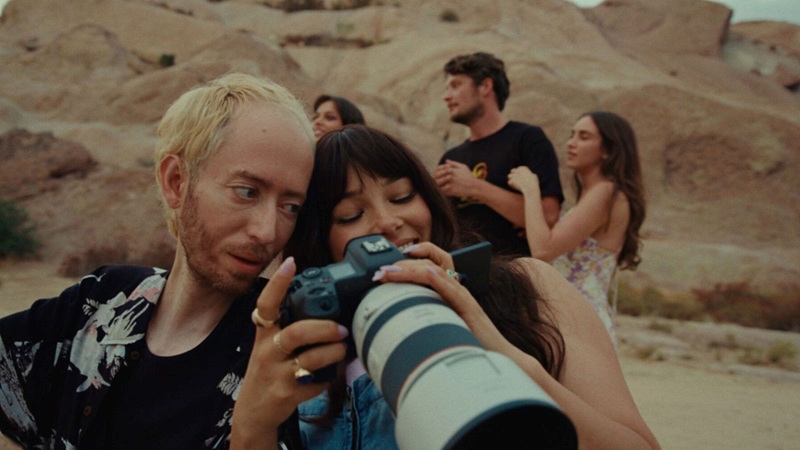Good Bad Things (Stanger, 2024)
Good Bad Things is a winsome indie romance from Music Box about a guy with Muscular Dystrophy who finds the woman of his dreams (of all our dreams really) on a dating app. She keeps their first date after he sends a message admitting that his app photo was deliberately cropped to hide that he has a disability, saves the straw he needs to drink (and moves his drink closer when the waiter doesn’t notice), invites him away to the desert for a work weekend (she’s a boudoir photographer), and in general seems pretty anxious to fall in love with him. It’s sweet, is a powerful reminder about representation and only suffers from the mild fault that I did not believe it for a second.
Case closed, right?
Except I kept thinking about E. M. Forster and Maurice. Forster’s novel, written in 1913-14 was not published until after his death, in part because its depiction of homosexual love was at odds with what was considered to be plausible and permissible. Don’t misunderstand me, I am not making a moral equivalency between homosexuality and disability. I am trying to make a point about that what we find plausible as readers is based on our experience of the world. In a world in which certain types of people and their experiences are hidden from us, what we know, or think we know, about their lives is usually an amalgamation of stereotypes and testimonials.
Did I think that Madi (Jessica Parker Kennedy) was a little too good to be true — more of an ideal fantasy partner for a lonely disabled guy than a fully realized character? Yes. But maybe that has more to do with character development than plausibility. Take “based on a true story” off of The Loving Story, and I could well have made the same remark — yeah, I don’t believe it.
But even if one doesn’t believe the story is plausible, perhaps that is all the more reason to write it, film it, and show it. Because unless someone can imagine a story that that is not yet plausible, it can never become plausible. Perhaps we have to see it before we can believe it.
Based on that rationale, I do wish that Good Bad Things had shown me more chemistry between the two leads. In real life, I have met many couples where I have thought that I did not see what the attraction was but where the attraction itself was undeniable. Here it feels like if I watched the film with the volume turned off, I wouldn’t be able to tell that Madi was saying how much she wanted to be with Danny. And even with the dialogue, I am not sure the film ever explains why she feels the way she does…it only insists that she does. The closest it comes is in a seen where Madi was that Danny “will not let” her feel sorry for him. When she does, I shrugged a little and wondered, “Did I miss a scene?”
I don’t feel particularly motivated to parse whether that’s a fault of the writer or the actress. Just saying that it is hard to recommend a love story, whatever positive qualities it has, when you don’t find yourself believing the two characters are actually in love. Maybe at 96 minutes the film doesn’t really have time to show seeds of love planted, nurtured, and slowly sprouting. Maybe it has to fast-forward the whole process in order to meet the demands of time and budget. Or maybe imagining how great it would feel to be in love is not the same thing as being able to imagine how that would happen.
In the movie High Fidelity, Rob fantasizes about his own funeral and ponders: ” I’ve always had this fantasy that some beautiful, tearful woman would insist on ‘You’re the Best Thing That Ever Happened to Me’ by Gladys Knight. But who would that woman be?” That female archetype now officially has a name: it’s Madi.
Is that too harsh? I honestly don’t know. One last thought. I spent a few days after watching the film pondering it what it would look like and/or feel like if the genders were reversed and a woman with muscular dystrophy met a guy on a dating app who didn’t much care about her disability and just saw through the outer form to the beautiful person she was inside. Would I find that equally implausible? Probably.

